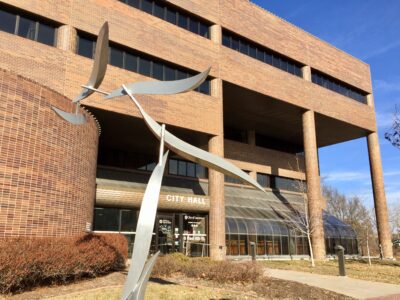Crop prices depressed as soybean harvest finally concludes

photo by: Journal-World File Photo
In this Journal-World file photo from November 2014, a load of soybeans are loaded for shipment at the Midland Co-op north of Lawrence.
The drawn-out 2018 soybean harvest may be finished locally before the first of the year, a local elevator manager says.
The late summer and fall rains that saved the soybean crop also delayed its harvest, said Clark Wenger, general manager of Ottawa Co-op. The 15 Ottawa Co-op elevators, including the two elevators in Lawrence, were open into December as the harvest dragged on, he said.
“We ended up taking 50,000 bushels over the weekend before Christmas,” he said. “It’s 98 percent complete, at least. There are just a few guys out there with fields they haven’t been able to get into.”
Yields tended to be in the normal range of about 42 bushels per acre in Douglas and Franklin counties, Wenger said. The bad news for farmers is that soybean prices have fallen steeply as a result of the international trade war that followed President Donald Trump’s March decision to impose tariffs on Chinese steel and aluminum imports.
The Trump administration announced in July it would make $12 billion in relief available to farmers to offset falling commodity prices because of the trade war. That package included a $1.65 per bushel payment for soybeans. However, the per-bushel tariff payment does not offset the decline in the market price for soybeans.
On Friday, the truck cash bid for soybeans in Kansas City was $8.45 per bushel. According to the Market Investors website, the prices of soybeans at the start of March was more than $10.50 per bushel.
The trade war is not the only thing depressing the soybean market, Wenger said.
“I think they have pretty good growing conditions down in South America, and that is keeping prices down,” he said.
The international trade situation has left farmers with a lot of uncertainty about what to plant in this spring, Wenger said. It was expected that more acres would be planted to wheat, but the same wet conditions that delayed the soybean harvest prevented the planting of winter wheat this fall, he said.
Farmers are also considering other alternatives, Wenger said.
“I hear people talking about oats and hemp,” he said. “I think you’ll see farmers try different things. Nationally, we’ll see more corn get planted than normal.”








COMMENTS